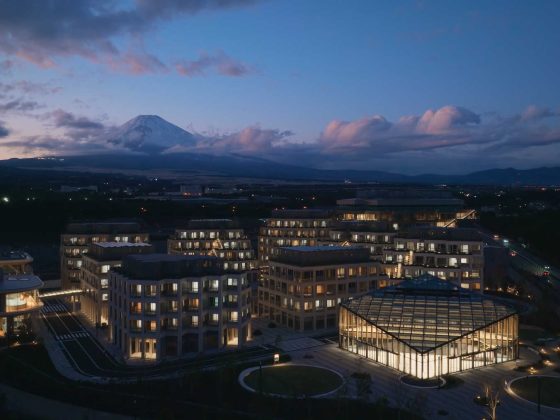Project Wolbachia – Singapore has achieved up to 98 per cent suppression of the urban Aedes aegypti mosquito population and 88 percent fewer dengue cases at existing study sites in Yishun, Tampines, Choa Chu Kang and Bukit Batok towns. From the fourth quarter of 2021, male Wolbachia-carrying Aedes aegypti (Wolbachia-Aedes) mosquitoes will be released in selected residential estates and construction sites within study areas. The aim is to test different strategies to determine the most effective and impactful approaches for future wider scale deployment for Project Wolbachia in Singapore.
Wolbachia technology successfully field-tested at Yishun, Tampines, Choa Chu Kang and Bukit Batok
As of June 2021, releases of male Wolbachia–Aedes mosquitoes at Yishun and Tampines have been expanded, from the initial 39 Housing & Development Board (HDB) blocks to 860 HDB blocks across both towns. Releases are also ongoing at dengue high-risk neighbourhoods at Choa Chu Kang and Bukit Batok towns, covering 207 HDB blocks where there have been consistently high Aedes aegypti mosquito populations.
The positive outcome of the field studies at Tampines and Yishun show that continued releases of male Wolbachia-Aedes mosquitoes can successfully suppress the female urban Aedes aegypti mosquito population in Singapore’s high-rise and high-density landscape. Up to 98 per cent suppression of populations of this dengue vector was observed at the core of the study sites. Positive spillover effect was also observed at non-release areas adjacent to the release sites. In most areas within the study sites, one to nine mosquitoes were caught per 100 traps per week after a few months of releases, significantly below the 50 or more mosquitoes caught prior to the releases. Correspondingly, the core areas of the study sites with at least one year of releases saw up to 88 per cent fewer dengue cases, compared to areas without releases.
Recent data from Choa Chu Kang and Bukit Batok towns also showed a similar reduction in the Aedes aegypti mosquito populations, with most areas having fewer than 10 mosquitoes caught per 100 traps per week.
The successful field studies were facilitated by NEA’s collaborations with partners, including Orinno Technology Pte. Ltd. (Orinno) and Verily Life Sciences LLC (Verily). Orinno co-develops engineering solutions for the mass production and release of male Wolbachia-Aedes mosquitoes, while Verily is responsible for the sex-sorting and release of male Wolbachia-Aedes mosquitoes at the Tampines site.
Dengue transmission reduced, some areas may take longer to see positive effects
Most areas in the study sites showed good suppression of the Aedes aegypti mosquito population within three to four months of beginning releases. However, there was dengue transmission in a few areas where it took longer to reduce the mosquito population. In parts of Tampines East and Changkat, the start of releases coincided with a general spike in the Aedes aegypti mosquito population in May 2020, suggesting that environmental factors can delay suppression. Some of these areas were adjacent to non-release areas with persistently high Aedes aegypti mosquito populations or existing large dengue clusters. These contributed to dengue transmission within the study sites, from September to December 2020. The Aedes aegypti mosquito populations were eventually suppressed to lower levels in February 2021.
The study also showed that in areas with very low Aedes aegypti mosquito populations, the presence of female Wolbachia-Aedes mosquitoes could result in Wolbachia–Aedes mosquitoes propagating in the field. The eggs from a pair of mated Wolbachia–Aedes mosquitoes are viable and can hatch, resulting in Wolbachia-carrying offspring. In June 2020, an increase in the female Wolbachia-Aedes mosquito population was observed at a small section of the Tampines West study area, where the Aedes aegypti mosquito population had previously been reduced to very low levels by Project Wolbachia. These female Wolbachia-Aedes mosquitoes in the community are less harmful than urban Aedes aegypti mosquitoes, because they are partially resistant to dengue infection and do not transmit dengue well. The additional technique of X-ray irradiation was introduced to sterilise the male Wolbachia-Aedes mosquitoes, which successfully reduced the urban Wolbachia-Aedes mosquito population.
Project expansion plans for 2021 – HDB sites, construction sites, and landed residential estates
“The overall positive impact of Project Wolbachia – Singapore is very encouraging. This is the first time that the technology has been shown to be effective in suppressing Aedes mosquitoes and reducing dengue in a challenging tropical highly-urbanised and high-rise environment,” said Associate Professor Ng Lee Ching, Group Director, Environmental Health Institute, NEA.
The releases at Tampines and Yishun will gradually be expanded to cover 686 and 769 HDB blocks respectively, by the first quarter of 2022. About 60 per cent of the blocks were already covered as of 1 May 2021. High-risk areas within Choa Chu Kang and Bukit Batok towns will also be covered by the end of 2021.
NEA will additionally expand releases to the Marine Parade landed estate area. We have been engaging residents, and have recruited volunteers to host different mosquito traps in their homes for mosquito surveillance. From the fourth quarter of 2021, vans equipped with release automation technology will be deployed to conduct targeted small-scale releases at the Marine Parade landed estate area. Data gathered will help guide deployment for larger scale releases at the area.
As part of the expansion, releases will be carried out at construction sites within the study sites. NEA is working with relevant stakeholders, including construction companies, to guide them on the surveillance and release of male Wolbachia-Aedes mosquitoes at such premises. This is part of our strategy to achieve better suppression at the study sites, by covering different terrains and landscapes.
“NEA’s progress in implementing the Wolbachia project in the past five years has been outstanding. The rigorous research and excellent data from these pioneering studies are critical to effectively scale up the programme, not only in Singapore, but also in other dengue endemic countries. The exciting results suggest that if Wolbachia technology is properly implemented alongside surveillance and community-based removal of Aedes mosquito breeding habitats, Singapore could potentially be the first dengue endemic country in the world to effectively control this epidemic disease”, said Professor Duane Gubler, Dengue Expert Advisory Panel Chairman and Emeritus Professor at Duke-NUS Medical School, Singapore.
For more information, please submit your enquiries electronically via the Online Feedback Form or myENV mobile application. Alternatively, you contact us at 6225 5632.









